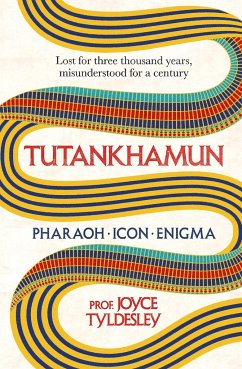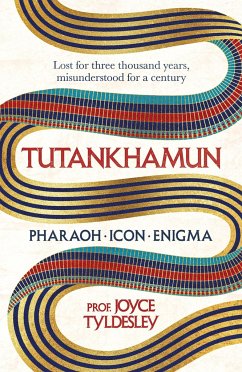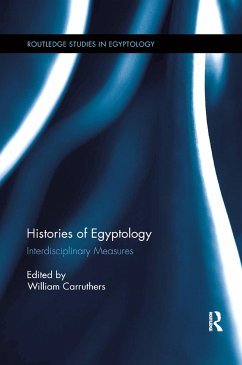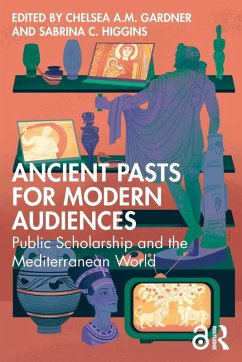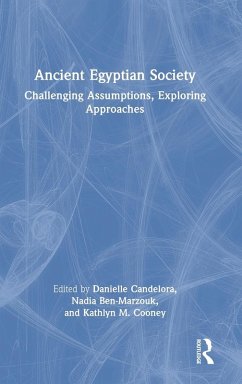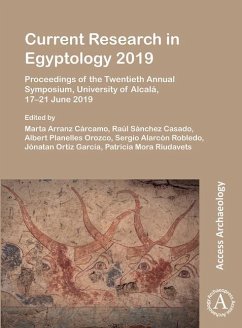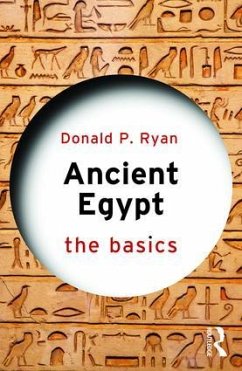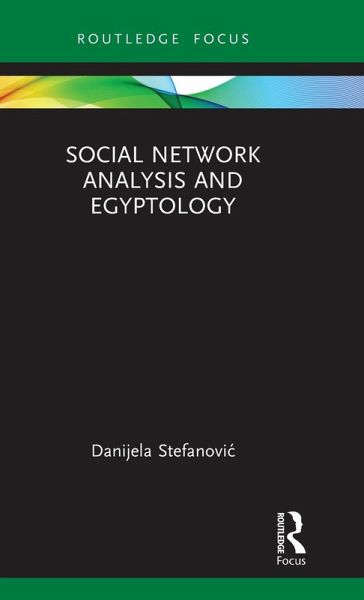
Social Network Analysis and Egyptology
Versandkostenfrei!
Versandfertig in 6-10 Tagen
59,99 €
inkl. MwSt.
Weitere Ausgaben:

PAYBACK Punkte
30 °P sammeln!
This book addresses Social Network Analysis (SNA) as a methodological approach in the field of Egyptology, exploring its possibilities, limitations, and applications within the discipline.Social Network Analysis is a sociological, graph theory-based approach used to investigate social structures created by patterns of relationships (ties or links) between actors (nodes), which has been utilised by scholars in other areas of ancient history. The book first provides readers with basic information on the theoretical background of methods applied in SNA, as well as network theory and Actor-Network...
This book addresses Social Network Analysis (SNA) as a methodological approach in the field of Egyptology, exploring its possibilities, limitations, and applications within the discipline.
Social Network Analysis is a sociological, graph theory-based approach used to investigate social structures created by patterns of relationships (ties or links) between actors (nodes), which has been utilised by scholars in other areas of ancient history. The book first provides readers with basic information on the theoretical background of methods applied in SNA, as well as network theory and Actor-Network Theory (ANT) more generally. It discusses the history of SNA specifically within the discipline of Egyptology, evaluating the advantages and limitations of this approach when applied to different types of datasets, such as written sources and material records. The author then explores a case study, examining the potential of network modelling on datasets from the Abydos votive zone during the Middle Kingdom period (c. 2040-1750 BC). The book highlights how SNA and network theory can be useful supplementary tools alongside more traditional research approaches in Egyptology for a more comprehensive understanding of social relations and interconnections in ancient contexts.
Social Network Analysis and Egyptology is suitable for students and scholars working on Egyptology who are interested in SNA methodology, as well as those working on Classical and Ancient Near Eastern archaeology and history. It also appeals to those interested in network research and theory more broadly. Colour versions of images in this book can be found in the Support Material: www.routledge.com/9781032599632.
Social Network Analysis is a sociological, graph theory-based approach used to investigate social structures created by patterns of relationships (ties or links) between actors (nodes), which has been utilised by scholars in other areas of ancient history. The book first provides readers with basic information on the theoretical background of methods applied in SNA, as well as network theory and Actor-Network Theory (ANT) more generally. It discusses the history of SNA specifically within the discipline of Egyptology, evaluating the advantages and limitations of this approach when applied to different types of datasets, such as written sources and material records. The author then explores a case study, examining the potential of network modelling on datasets from the Abydos votive zone during the Middle Kingdom period (c. 2040-1750 BC). The book highlights how SNA and network theory can be useful supplementary tools alongside more traditional research approaches in Egyptology for a more comprehensive understanding of social relations and interconnections in ancient contexts.
Social Network Analysis and Egyptology is suitable for students and scholars working on Egyptology who are interested in SNA methodology, as well as those working on Classical and Ancient Near Eastern archaeology and history. It also appeals to those interested in network research and theory more broadly. Colour versions of images in this book can be found in the Support Material: www.routledge.com/9781032599632.






